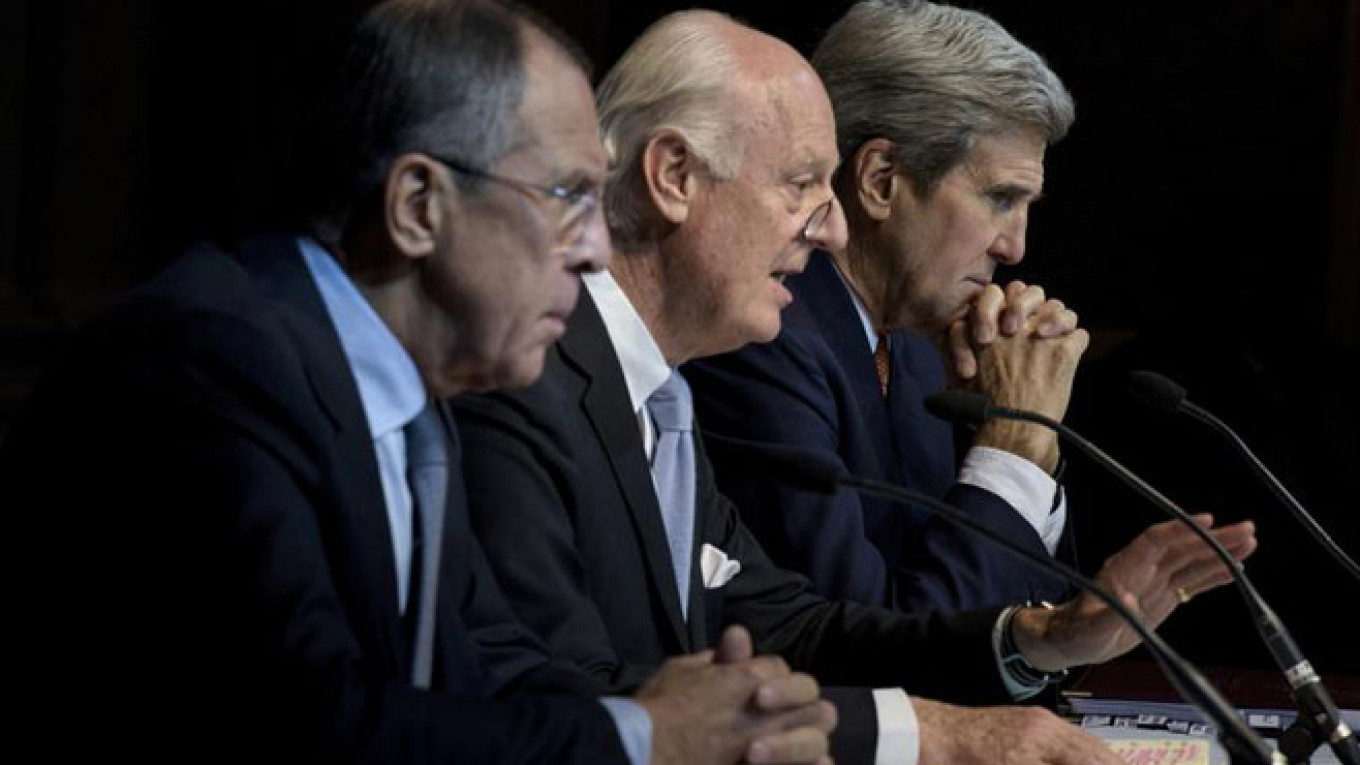With terrorism now the most likely cause of the plane crash that occurred over the Sinai last week, the authorities have halted all air service between Russia and Egypt and ordered the evacuation of tens of thousands of Russian tourists.
Some suspect that the Russian authorities took no steps to increase security measures following the start of their bombing campaign in Syria. Observers might excuse this lapse by pointing out that European countries, whose citizens frequent Egyptian resorts in even greater numbers, also had not taken such steps. However, it was a Russian plane that crashed, not theirs, and if more than 200 Europeans had died, the same question would be directed at those governments.
Confirmation that a terrorist attack was responsible for the crash could have a massive impact on Russia's domestic and foreign policy. For example, in response to the tragedy in the North Caucasus city of Beslan, the authorities "suddenly" banned direct gubernatorial elections and put other civil processes "on hold." Current events will prove to be not only the next milestone in Russia's downhill slide into a war on terror in the Middle East and beyond, but will also deepen this country's isolation from the "hostile" outside world and push it into a dangerous impasse with the West.
Russia must find a balance between the two extremes of a Soviet-like isolation from the world and close cooperation with the West on vital issues. That balance will affect both the country's domestic life and economy: Either it will slide further into a "mobilization model" even as the government displays an obvious inability to manage such a system, or else it will liberate the forces of openness and freedom that are needed, at least to some extent, for economic growth. In short, Russia faces a very difficult task.
The main paradox of the near future is that Russia will find it increasingly difficult to maintain economic and social stability as its anti-Western brand of isolationism excludes the possibility of the very interaction with the West needed to achieve those goals. Cooperation on the fight against terrorism is not enough. It is difficult to say when, and even if, leaders will ever find a new balance. However, time for that search is rapidly running out and Moscow has no ready solution other than upping the ante in the Syria game or maintaining the tension over Ukraine.
The fight against international terrorism requires much closer, and more sincere cooperation between Russia and the West than currently exists. President Vladimir Putin decided to stop all flights to Egypt after his conversation with British Prime Minister David Cameron. Obviously, Cameron presented arguments that convinced Putin to follow the example of many other European countries. It is unlikely that British intelligence knew in advance of the attack or could have warned their Russian colleagues.
However, there is no denying that, even in the past, cooperation between Russian and Western — primarily with the U.S. and British — intelligence agencies left a lot to be desired, but now such cooperation has practically ground to a halt over the situation in Ukraine. Will it become more constructive, particularly for fighting the Islamic State, or will the "limited openness" concerning the recent air disaster remain a fleeting gesture by the former G8 partner? The same question applies to Russia's interactions with the U.S. Russian intelligence agencies requested, and are apparently receiving assistance from the FBI in investigating the cause of the crash and the possible use of explosives onboard.
In this way, Russia's military intervention in Syria might indeed lead to a new "post-Ukrainian" agenda between Moscow and the West.
Of course, counter-terrorism could become the basis for constructive cooperation, but only in the context of positive relations on a wider range of issues. And for that, the West would have to find a way to tolerate the Putin regime and Russia would have to abandon its fervent anti-Western rhetoric, no matter how much it views Western values as "morally unacceptable." Both sides will obviously face a major task in reaching that middle ground. However, no "cooperation on counter-terrorism measures" is possible otherwise.
Georgy Bovt is a political analyst.
A Message from The Moscow Times:
Dear readers,
We are facing unprecedented challenges. Russia's Prosecutor General's Office has designated The Moscow Times as an "undesirable" organization, criminalizing our work and putting our staff at risk of prosecution. This follows our earlier unjust labeling as a "foreign agent."
These actions are direct attempts to silence independent journalism in Russia. The authorities claim our work "discredits the decisions of the Russian leadership." We see things differently: we strive to provide accurate, unbiased reporting on Russia.
We, the journalists of The Moscow Times, refuse to be silenced. But to continue our work, we need your help.
Your support, no matter how small, makes a world of difference. If you can, please support us monthly starting from just $2. It's quick to set up, and every contribution makes a significant impact.
By supporting The Moscow Times, you're defending open, independent journalism in the face of repression. Thank you for standing with us.
Remind me later.


